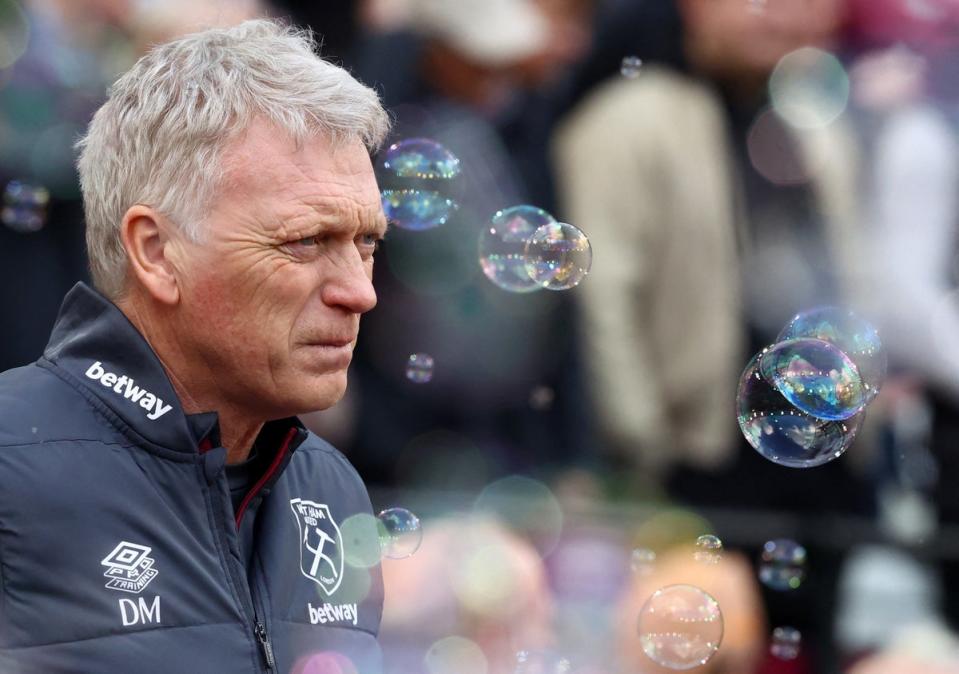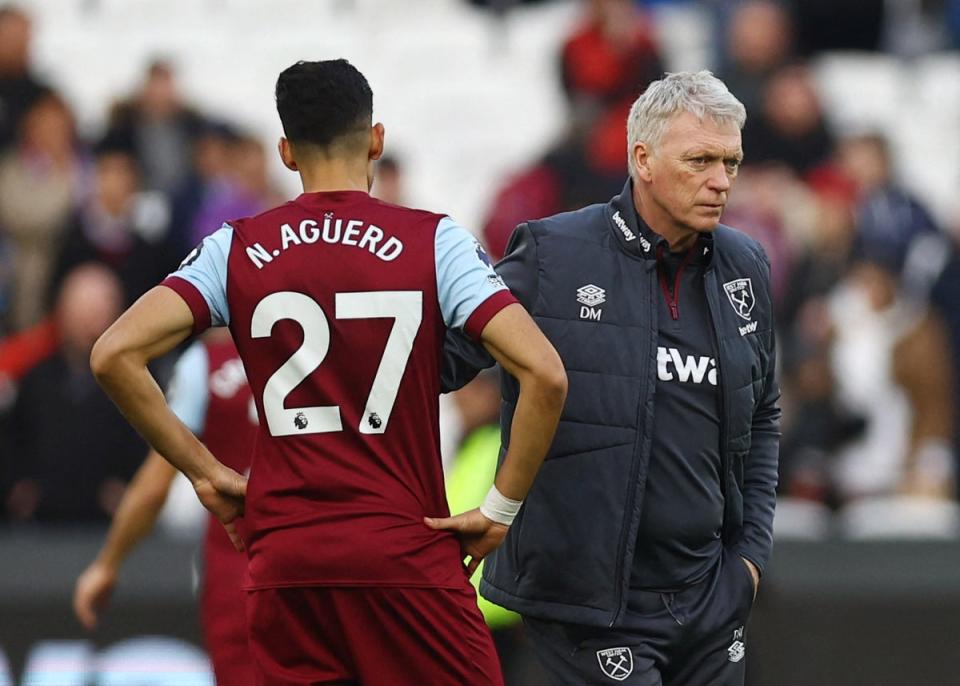The paradox of David Moyes as West Ham fall back into frustrating cycle
David Moyes contemplated another West Ham landmark, only this one will not result in an open-bus parade. The manager who led West Ham to their first European trophy since 1965 has now presided over their heaviest top-flight home defeat in 61 years. Eight months on from that night in Prague, and the day where fans lined the streets to hail their returning Europa Conference League heroes, the London Stadium emptied as quickly as West Ham capitulated. Arsenal sparked an exodus and Moyes was left to inspect the wreckage.
“It’s difficult to explain,” Moyes began. How quickly the mood has turned, and not just from those June celebrations. Even six weeks ago, West Ham’s defensive resilience earned Moyes’s side back-to-back wins over Manchester United and Arsenal. But from believing they had put themselves into the mix for the top-four race, West Ham are now winless in seven games in 2024, their defence a shambles as Arsenal put six past them. “I don’t think - since I’ve come back to the club - my team’s defended that way. Ever,” Moyes said.
Moyes reflected that his side’s historic defeat was part of the ups and downs of football: “There’s always going to be bad times,” he explained. “It was only a few months ago we were having probably the best time West Ham have ever had. Undoubtedly we’ve had a terrible day today. I totally understand them leaving but at football clubs you’re going to have bad days. I certainly wouldn’t forget the good ones.” Yet, historically, Moyes has not retained much public backing during those lower moments, and patience is again wearing thin.

It is part of the paradox of Moyes: despite what he has achieved at West Ham, his position has never felt completely secure. While taking West Ham from the brink of relegation to Premier League finishes of sixth and seventh, and from reaching the semi-finals of the Europa League to lifting the club’s first trophy in 43 years, the Scot has equally faced periods of dissent and disapproval. The man who gave modern day West Ham their greatest night survived a “Moyes Out” banner at Craven Cottage just weeks before the Prague final.
Now Moyes is out of contract at the end of the season and the cycle is turning again. Six weeks ago, following those wins over Manchester United and Arsenal either side of Christmas, Moyes was reportedly set to be rewarded with a new two-and-a-half year deal. It did not materialise, and after failing to strengthen in January, West Ham are sliding in the league, out of the FA Cup after losing a fourth-round replay to Bristol City, and Moyes finds himself back in a precarious position.
It can feel unfair. Despite selling captain Declan Rice this summer, Moyes has West Ham level on points with Newcastle in the table, above Brighton and Chelsea. Mauricio Pochettino spent more in one summer than Moyes has in four years but it was he who got more out of his team. While Roberto De Zerbi draws rave reviews and links with Liverpool, Moyes may claim his side have proved to be more efficient and effective than the Italian’s.
But with his pragmatic approach and a management style that at times appears to be overly cautious, Moyes can also leave himself little margin for error. Against Arsenal, West Ham displayed an alarming lack of the traits and characteristics that a Moyes side should have; an absence of organisation and defensive instincts. West Ham were easy to play against and Moyes said he did not recognise his own team. "I’m not used to my team conceding the goals like we have been," Moyes said. "We have no real reason to say why that should be happening.”

At which point, it is fair to ask what West Ham are trying to be. Moyes has missed the outstanding Lucas Paqueta, whose magic in midfield helped Moyes with his plans to evolve the side. Mohammed Kudus has shown his attacking qualities since arriving last summer but was anonymous against Arsenal. With West Ham failing to replace Said Benrahma in January, Moyes once again deployed a full-back in his attack in Ben Johnson, who looked lost on the left wing. It perhaps gave Moyes’s comments a more pointed edge; there is a view where he doesn’t know what to do with the new players at his disposal.
“We were weak, we didn’t do our jobs well enough,” he continued. “We didn’t fight to contain it harder and make sure that we didn’t concede and we could have conceded other goals as well. Maybe I’ve had teams here which haven’t had the same quality as what we’ve had here but we would have made sure we didn’t put in a performance like that – that’s for sure. We’re trying to step forward, trying to integrate some different players, attacking players as well. Defensively it just wasn’t good enough.”
It presents a conundrum that West Ham have been through before, which arrives as soon as the winning stops. It may seem overly dismissive to argue that Moyes should have left West Ham after delivering such a high last June, disrespectful to suggest that he was incapable of taking them any further. Moyes is right to believe West Ham have grown under him, but the more West Ham try to evolve, the less Moyes they become. And, as he watched his team lose 6-0 at home, what hurt Moyes the most was that he could not see a David Moyes team.

